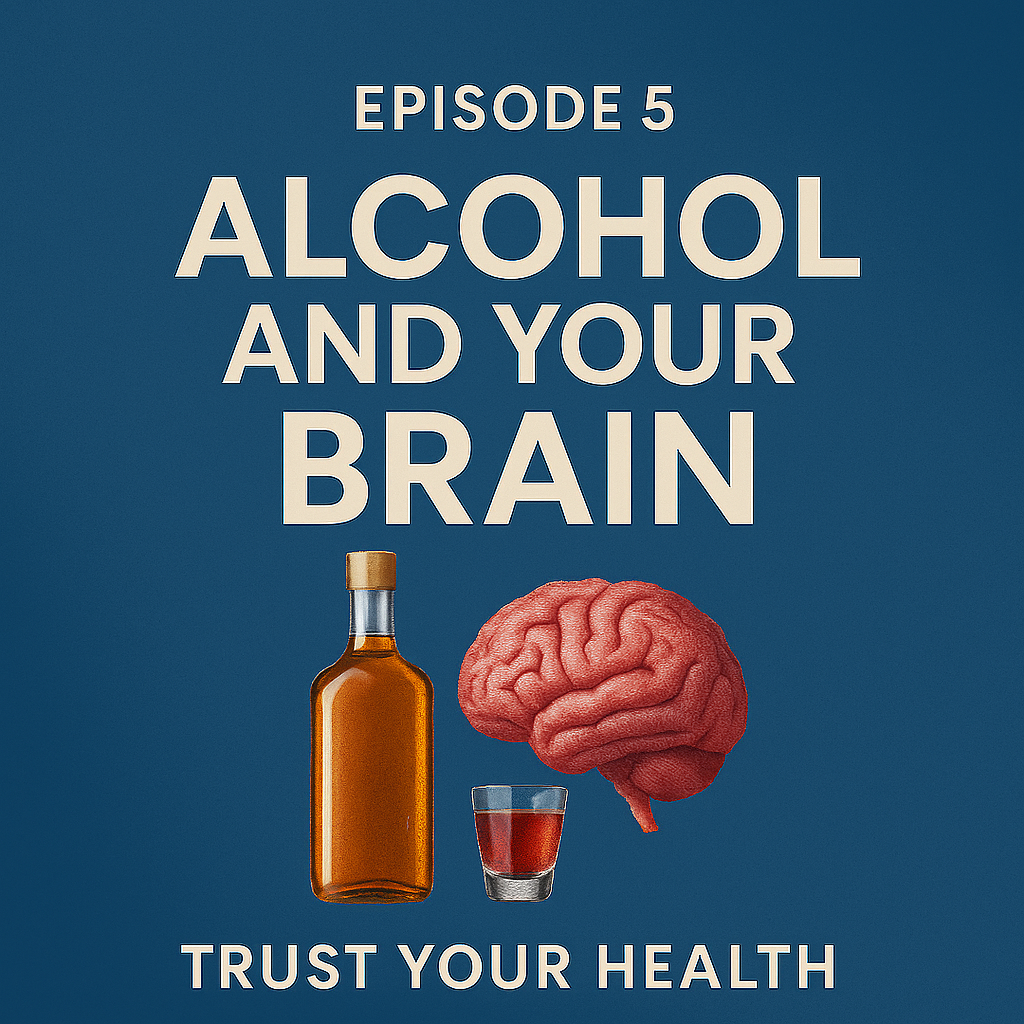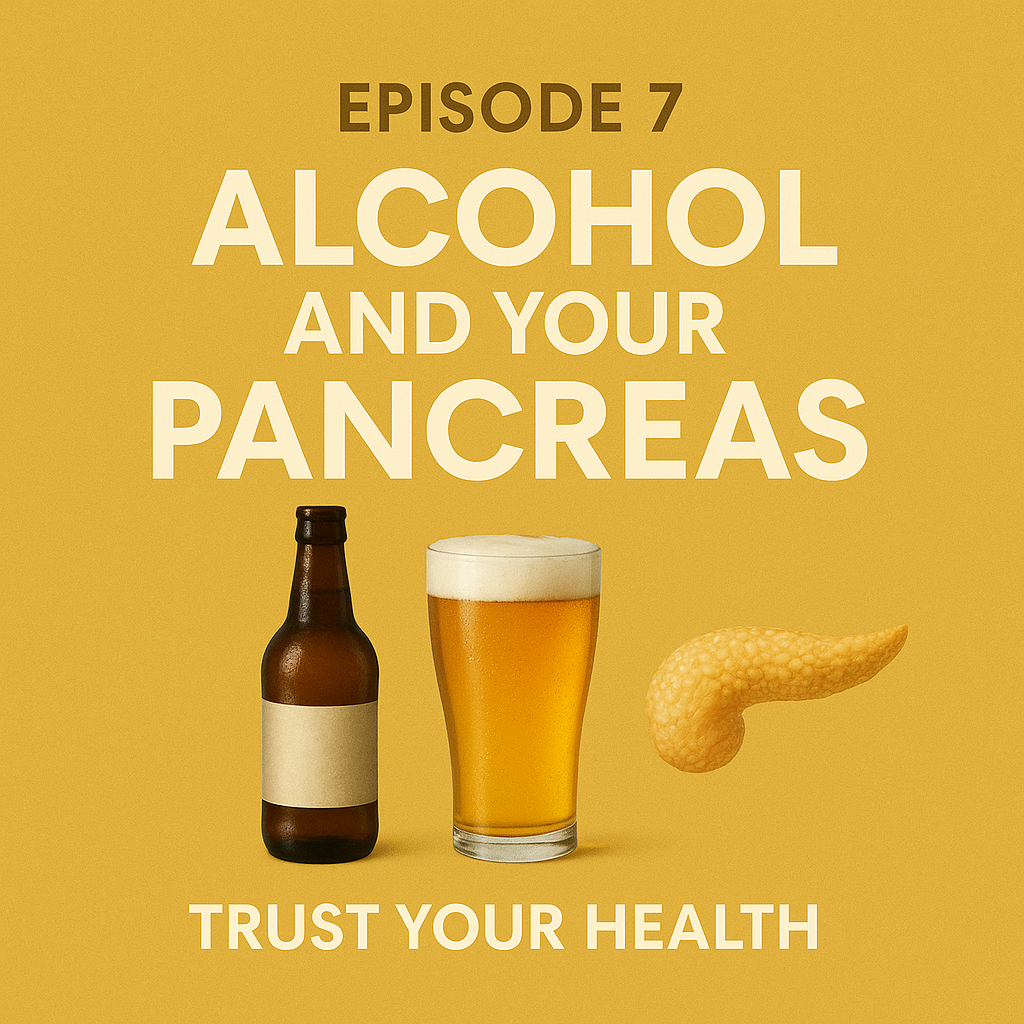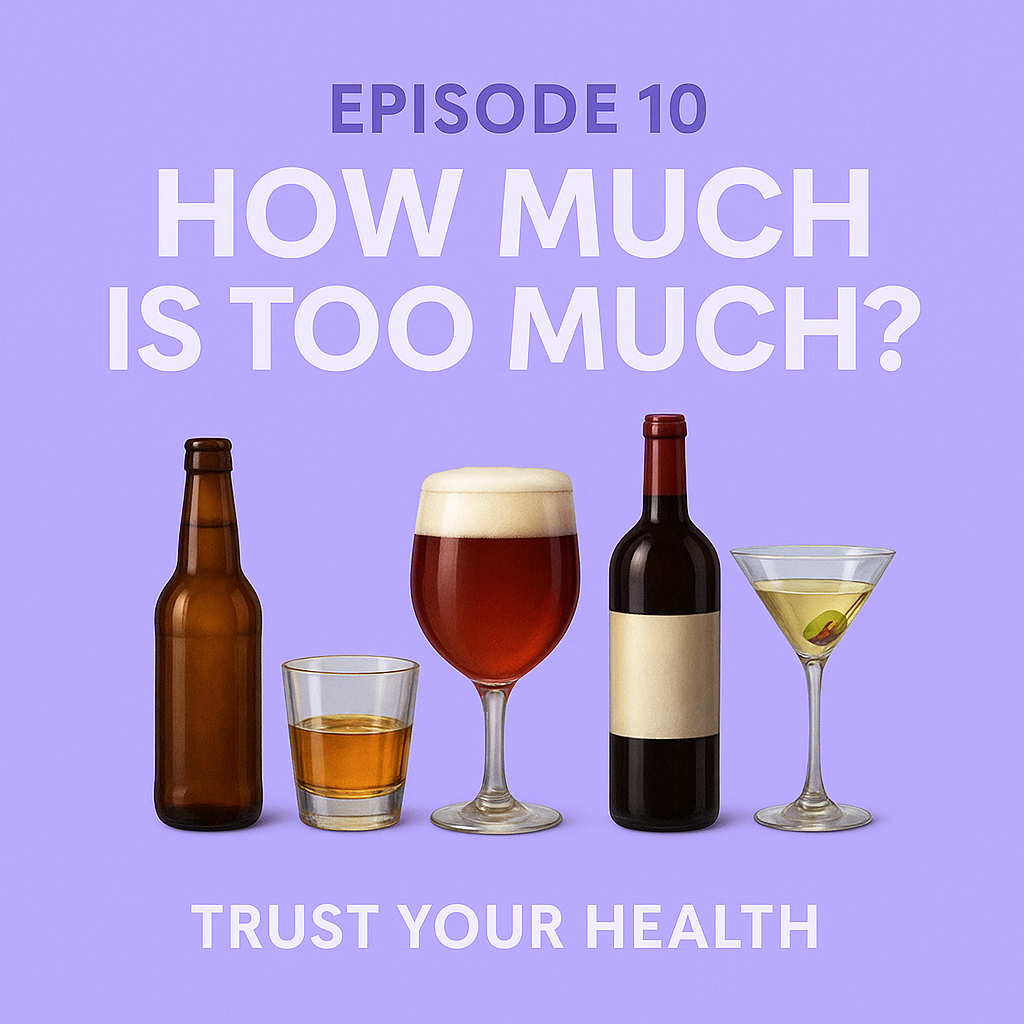Episode Transcript
You’ve probably heard that caffeine is a diuretic — but what does that really mean for your kidneys?
In this episode of Trust Your Health, we’re breaking down how caffeine affects your kidneys, your hydration, and your risk of kidney stones — so you can make smarter choices about your coffee, tea, and energy drink habits.
Let’s start with the basics.
Your kidneys act as your body’s natural filters — removing waste, balancing fluids, and regulating electrolytes. Every day they filter about 50 gallons of blood to produce about 1 to 2 quarts of urine.
Caffeine has a mild diuretic effect, meaning it increases urine production. For most people, this isn’t enough to cause real dehydration — especially if you’re drinking water along with your coffee. But if you’re already low on fluids, or drinking high amounts of caffeine without water, you can end up feeling dehydrated.
That dehydration puts stress on your kidneys, making it harder for them to properly flush out waste. You might feel dizzy, tired, or notice your urine is darker than usual — all signs you need to drink more water.
Another concern with caffeine and kidneys is kidney stones.
So what exactly are kidney stones?
Kidney stones are hard, crystal-like deposits that form inside your kidneys. They develop when minerals and salts — like calcium, oxalate, or uric acid — build up in your urine and clump together.
These stones can vary in size, from tiny grains that pass easily to larger stones that can block urine flow and cause intense pain, nausea, or even infection. If you’ve ever had one, you know how painful they can be.
Some studies suggest that moderate caffeine intake may actually help prevent certain types of stones — by increasing urine flow and reducing the chance of crystals sticking together.
But here’s the catch: at higher doses, caffeine can increase calcium in your urine, which may raise the risk of stones in people who are already prone to them.
That’s why hydration is key. Drinking plenty of water helps dilute your urine and flush out minerals before they can form stones.
If you’ve had kidney stones before, it’s especially important to balance your caffeine with water and talk to your doctor about the right limit for you.
There’s also the question of kidney disease. So far, there’s no strong evidence that moderate caffeine directly damages healthy kidneys. But in people with existing kidney disease, high caffeine intake can raise blood pressure and put extra strain on already weakened kidneys.
So what can you do?
Keep your caffeine moderate — about 3 to 4 cups of coffee or less per day. And always balance it with plenty of water to stay hydrated.
If you notice signs of dehydration — dark urine, dizziness, or fatigue — cut back and increase your water intake.
And if you already have kidney disease or a history of kidney stones, check with your doctor about the right amount of caffeine for your situation.
Your kidneys work hard for you every day — and they deserve a little care in return.
In our next episode, we’ll move on to your brain — and explore how caffeine affects focus, anxiety, and even sleep over time.
Thanks for listening to Trust Your Health. Because trusting your health begins by understanding your body.
Be sure to follow the podcast so whenever you need clear, honest advice about your body, we’ll be here to help you make sense of it.


